Get Better Faster with Custom Chinese Herbal Treatments - Indiviudal Treatment for Individual People2/6/2018 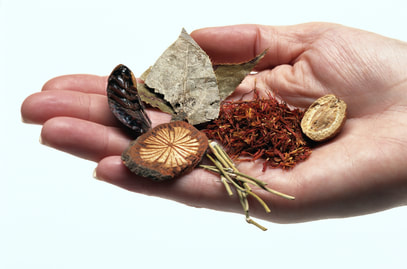 Acupuncture works well for many health issues and greatly stimulates the body's healing response. Yet in some cases, it can take many Acupuncture treatments over a period of weeks or months to see lasting results. By contrast, custom Chinese herbs bypass the Acupuncture channels and work directly on the body's organ systems guiding them back into healthy balance. Taken in divided doses 2-3 times per day, they can be used independently of Acupuncture, or synergistically with Acupuncture, to greatly enhance the speed and success of treatment. A custom-designed herbal formula typically has anywhere from 2-18 herbal ingredients and is carefully tailored to each person’s specific health needs. It takes into consideration the state of each one of their body’s organ systems. Unlike Western Medicine, two people that come in for Anxiety can have two very different Chinese medicine diagnoses, and thus will be prescribed two very different Chinese herbal formulas. We call this “syndrome differentiation” or in other words, individual treatment for individual people. For example, say a 35 year old woman comes in with Anxiety and presents with heart palpitations, insomnia, a pale face, light-headedness, low energy, and a scanty period. She will be given herbs that specifically address her unique pattern of imbalance. If another 22 year old woman comes in for Anxiety and presents with different symptoms such as racing heart, insomnia, irritability, PMS, and abdominal cramps with her period, she will be given a completely different blend of herbs. Both are coming in for Anxiety and yet each one is being treated for a unique and different pattern of imbalance. The first woman's symptoms indicate an energetic pattern of deficiency and needs nourishing herbs to heal, while the second woman's symptoms indicate an energetic pattern of excess and needs heat clearing and Qi regulating herbs to balance and heal. They might be on the same Western medications for their symptoms, but to a Chinese Medicine Practitioner's eyes, they are completely different presentations requiring completely different treatments. If they were pursuing herbal-only treatment, these women would come in for a 30 to 45-minute Herbal Consultations during which a diagnosis and an herbal formula are identified and prescribed. They will either pick up their herbal formula at a nearby herb pharmacy, or receive their custom herbs by mail from Crane-West Herbs. Most likely, their herbs will come in a powdered-extract form, all blended together into one bottle. To take the herbs, they would scoop a measured dose as prescribed into warm water and stir to dissolve, then sip or drink. They would repeat as prescribed, usually 2-3x per day. Taking the herbs consistently throughout the course of treatment is key to achieving clear lasting results. Using the herbs regularly throughout each day allows the herbs corrective properties to shift a person from a state of imbalance to one of balance and health efficiently and effectively. Chinese Herbal Medicine works well because it is tailored to address each person’s specific pattern of imbalance and also because the herbs are taken multiple times a day on a daily basis throughout a course of treatment. The specificity and the consistent application of custom Chinese herbs make them a powerhouse among healing interventions. Something that empowers the patient each and every day, and each and every dose to shift towards balance, thus making positive changes towards lasting health. Would you like to know more about how Chinese Herbs can accelerate your healing with or without Acupuncture treatment? Click the “book now” link at the top of the page to sign up for Acupuncture - which always includes herbal consultation if interested - today! 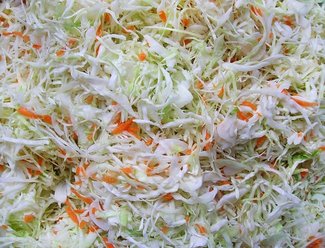 The modern world is changing every single day. Because of this constant state of change, our bodies are frequently having to adjust. We have a food supply being degraded and depleted of nutritional content, which in turn, causes our bodies to become depleted. Our soil and water is contaminated with antibiotics and deadly fertilizers. All of which become part of the food chain we rely upon. Because of this, antibiotics are failing and superbugs like MRSA are on the rise. Lack of nutrition and the overuse of antibiotics are just a couple of the things wreaking havoc on our intestinal health. But there are ways to combat this and keep the gut healthy. Traditional Chinese Medicine (TCM) has been around for thousands of years and the approach of this medical system is to treat the patient holistically. TCM has been shown to be effective at treating a wide variety of ailments, including digestive issues. Part of this is because TCM focuses heavily on diet and nutrition. Qi is equated with energy and every organ, pathway and cell in the human body is composed of energy. For the body to function properly, Qi needs to be sufficient at all times. One of the best ways to maintain sufficient Qi is through our daily diet. Science is proving what TCM practitioners have known for centuries, our digestive health is vital for the cells of the body to function optimally. The gastrointestinal tract acts as a “second brain.” It has the ability to constantly transform us. The Human Microbiome Project is an ongoing study confirming microscopic bacterial colonies in our digestive tract have very important jobs to do. The bacterial colonies help keep us healthy both physically and mentally. But because of human intervention, these bacterial colonies in our guts are becoming sick, depleted and are dying. To rejuvenate these gastrointestinal bacterial colonies, many people are turning to TCM for help. Acupuncture and Chinese herbal formulas are great methods that focus on reviving our gastrointestinal Qi. Reviving this Qi in turn can improve digestion, decrease gas and bloating and improve bowel movements. The stomach and spleen are the two main pathways TCM practitioners focus on when treating somebody who exhibits digestive Qi deficiencies because these are the organs responsible for digestion in the TCM system. TCM nutritional advice is part of this program for optimizing digestive health. This is where fermented foods come into play. Fermented foods have been around for centuries as well. Fermentation is one of the oldest attempts to preserve food. But in today’s world, fermented foods, like sauerkraut, kimchi and yogurt are being utilized to help restore the healthy bacterial colonies found within the gastrointestinal tract. In fermentation, bacteria or yeast feed on natural sugars found in foods. This makes certain foods easier for the gut to digest and allows for the nutrients to be absorbed during digestion. People who do not ingest fermented foods can actually develop immune deficiencies which can lead to serious illness and disease. For instance, sauerkraut, which is fermented cabbage, actually has anti-carcinogenic components that can help prevent cancer. Yogurt can help prevent colorectal cancer, breast cancer and yeast infections. Kimchi has been shown to help improve symptoms of asthma and other allergic reactions, while also lowering LDL or “bad” cholesterol levels. Incorporating fermented foods into the daily diet and getting regular acupuncture treatments that help balance out the body’s Qi, can lead to a very healthy gastrointestinal tract. And when the gut is happy, the body is happy, the brain is happy and the mood is improved. Sound awesome? It is! Try increasing your fermented food intake and adding Acupuncture to the mix today and see how great it feels! 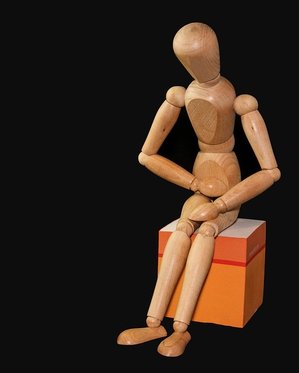 Irritable Bowel Syndrome is something I am intimately familiar with. In my teens I developed IBS from an eating disorder, and even once my bad dietary habits stopped I continued having IBS into my 20's - until I found Chinese Medicine. Treating IBS and helping patients determine if they have food sensitivities that are contributing is something very near and dear to my heart, therefore. I even wrote my Master's Degree research paper on it which you can read by clicking here! For those not interested in the pathological details however, here are some helpful tips and tricks that you can put into action today. I hope you will find this information informative and useful! My success with Acupuncture and Chinese Medicine to treat IBS felt miraculous, so if you have IBS or know someone who does I HIGHLY recommend you try (or encourage those you love to try) this treatment. Regardless read on and enjoy! Irritable Bowel Syndrome, otherwise known as “spastic colon,” is a common disorder that affects the colon and causes many disruptive symptoms. Many of these symptoms can be managed with a simple change in diet and lifestyle. Chinese herbal medicine and acupuncture may be able to help. IBS symptoms may include gas, bloating, alternating constipation and diarrhea, pain, mucus, an uncomfortably full feeling and abdominal cramping. Most of these symptoms develop over time, and there is no structural or anatomical change that can be detected as cause. Doctors are unsure of the origin, though stress and diet are said to be triggers of distressing symptoms. Women suffer from IBS more frequently than men. One of the most common diagnosis of IBS in Traditional Chinese Medicine is what is known as a “liver-spleen disharmony” due to stress. Normally, the liver is in charge of the free flow of energy (or vital force), blood and oxygen to the spleen and stomach, the organs who do their job of digesting food by transporting and transforming food and descending energy downward. When the liver energy becomes stagnant through emotions such as stress, frustration, anger, moodiness and tightness in the body (the liver is sensitive to these emotions), this encumbers proper digestion and what can result is acid, belching, nausea, abdominal distention and bloating. Diarrhea or constipation can occur or irregular bowel movements. Other common symptoms of stagnant liver energy are PMS, cramping with clots and irregular menses. Easing stress would be the most important aspect of the treatment plan to get to the root of the issue. Another common cause of IBS is food sensitivity. Eliminating trigger foods has been shown to help symptoms tremendously. Here are some things to consider eliminating: Too many cold, raw vegetables: Eating too many cold, raw vegetables dampens the digestive fire and leads to malabsorption. Cook vegetables instead and eat them warm. Cruciferous vegetables and legumes: These are healthy but can cause gas and bloating in sensitive individuals. Consider eating them cooked and/or decreasing or eliminating them from your diet depending on your sensitivity level. Dairy: Lactose intolerance can lead to digestive ailments. If you aren’t sure, try eliminating dairy such as milk, yogurt and cheese for AT LEAST 2 weeks before reintroducing them and seeing how you feel. Eating fast, while angry or hurried: When you eat or drink quickly, you might be inhaling too much air and eating too much. Eat slowly and mindfully. Other triggers: Sensitivities might include chocolate, carbonated drinks, artificial sweeteners, caffeine, greasy food or processed food. Hormonal changes could also be a factor in increased IBS symptoms as well. Start keeping a food journal that notes time, food eaten and symptoms for each day - see if you can draw any correlations after 2 weeks. How to know for sure? It is best not to self-diagnose symptoms, so see your medical provider to see if you have IBS and not something more serious. Your Chinese medical practitioner can help you by diagnosing the symptoms according to a more eastern perspective, administering acupuncture and perhaps prescribing an herbal formula, and adjusting your diet to eliminate triggers that are irritating for your particular constitution. Some remedies for IBS include acupuncture to improve flow in the abdomen and ease stress, herbs, increasing fiber (gradually, or it could worsen symptoms), massaging the abdomen (9x clockwise, 9x counter-clockwise), exercise to move things around such as tai qi or qigong, and probiotics to increase good bacteria in the stomach. Peppermint, magnesium, and chamomile can soothe and ease symptoms. If you want to know more or want to get started with treatment, feel free to book in anytime. It would be my pleasure to apply my knowledge and experience and help! Yours in Health, ~Rebecca 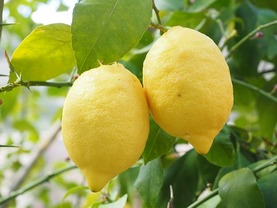 Created by Stanley Burroughs, author of the book The Master Cleanser, the master cleanse is a great way to cleanse the body while giving the digestive system a much-needed rest. The master cleanse, usually used to achieve rapid weight loss, can also be used to heal and nourish the body. The cleanse is a liquid diet, which some refer to as a juice fast. It effectively supplies all of the healthy and essential nutrients and calories the body needs to function. The beauty of the master cleanse is that in addition to being rewarding and beneficial for your body, it is also extremely easy to follow and inact. There are three main parts of the master cleanse. You should utilize all three of these parts in order to extract all of the healing and fasting properties of the master cleanse. The three parts are the lemon drink, the salt drink and the herbal/laxative teas. First, you need to make sure to six to 12 glasses of the lemon drink per day over the course of a 10-day period. The lemon drink consists of freshly squeezed lemon juice, a pinch of cayenne pepper, water and maple syrup. Balance out your intake of the lemon drink throughout the day with regular water if you still feel thirsty. The salt drink part of the cleanse is a little bit different. The salt drink consists of just lukewarm water and natural sea salt. You should make sure to drink a quart every morning, all in one sitting. The third and final part to the master cleanse is an herbal laxative or tea. Make sure to take a laxative or drink a laxative tea before bed each night in order to complete the steps of the master cleanse. The master cleanse is an extremely effective form of detox dieting, and if you want to pursue it you should! Spring is the time in Chinese Medicine to cleanse and the master cleanse is a strict though relatively simple cleanse to do. I highly recommend that you read reviews of the cleanse and get the precise details of the recipe from Stanley's book and consider easing in and easing out of the cleanse if you decide to pursue this option. I personally cleanse every Spring myself, and I particularly like revisiting a basic Elimination Diet without the testing portion - making it a 4 week process - and including a detox supplement like Mediclear by Thorne. More than anything I feel like one of the most impactful parts of a cleanse is resetting your habits. Its easy to slide into bad habits and a cleanse, any type of cleanse, forces you into that resetting. If you're lucky and determined, you make the best parts of it stick - until the holidays that is... If you have questions about cleansing don't hesitate to ask at your next Acupuncture session and if you ARE cleansing, get on the books! Acupuncture can support healthy liver and digestive function which gets you the most out of your cleanse that you possibly can. 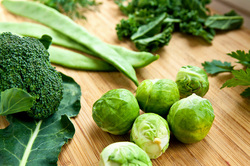 Do you suffer from gas? bloating? discomfort? intestinal irritation? You may have Irritable bowel syndrome or IBS - a condition that's digestive condition characterized by chronic stomach pain, bloating, irregular bowel movements, diarrhea and/or constipation. It's estimated that upwards of 15% of the United States population suffers from IBS, many of whom do not even realize it. I am one of those sufferers, and my symptoms started when I was a teenager. In my 20's I pursued Chinese Medicine for relief and was amazed to find that it completely controlled my symptoms after 3 months of treatment. Unfortunately, after a very high stress time my symptoms returned and I learned I had become Soy and Gluten Intolerant. Now, as long as I avoid those foods, get regular Acupuncture and maintain a healthy diet my IBS symptoms are under control. What is a healthy diet you might ask? That can be highly individual, aside from the expected - avoiding foods I'm allergic to, avoiding sugar, high alcohol intake and caffeine. Diet, exercise and alternative interventions like Acupuncture really can be the key to easy management of IBS and even though there's no known cure for IBS, individuals can definitely prevent symptoms from occurring. In lieu of personalized dietary counseling, here is a Top 4 List of foods to avoid if you have IBS to help keep symptoms at bay. Brussels Sprouts Although they are loaded in beneficial nutrients like vitamin K, vitamin C, vitamin B6, folate, manganese and fiber, Brussels sprouts should be avoided by people with IBS. This fun-sized vegetable can worsen the symptoms of IBS by promoting excess gas and abdominal pain. While each and every case of IBS is unique, most people report adverse symptoms after consuming Brussels sprouts. Broccoli Another food that you should consider avoiding raw is broccoli. This crunchy, stalky vegetable is high in fiber and it promotes gas – two elements that can worsen IBS symptoms. It's important to note, however, that cooking broccoli may eliminate some or all of its negative effects. So if raw, uncooked broccoli triggers a bout of IBS, try steaming or sautéing it. A quick toss with some olive oil, lemon juice and a dash of salt and voila - delicious, less (or no!) gas producing broccoli is at your disposal. Cooking broccoli may allow you to reap the nutritional benefits of this vegetable without irritating your digestive system. The truth is that any high-fiber vegetable may cause digestive issues in people with IBS, so don't assume that broccoli and Brussels sprouts are the only culprits, but these two have been commonly reported as irritants. Milk You may want to think twice before eating a milk-filled bowl of cereal for breakfast in the morning, as it can worsen IBS symptoms. Normally, the small intestines do a pretty good job at breaking down lactose. If there's no enough enzymes to perform this operation, however, some of it will travel to the large intestines where the it's fermented. Not only will this cause gas, but it can also cause bloating, cramps, spasms and diarrhea. Beans It should come as no surprise that beans is on our list of foods for IBS sufferers to avoid. Beans (legumes) contain a special type of sugar known as oligosaccharide, which the body is unable to break down. Since they aren't broken down in the same manner as other sugars, oligosaccharides pass through the small and large intestines, at which point bacteria converts them to gas. Interested in Learning More? I actually wrote a research paper on IBS which you can access HERE on my website for more detailed information about IBS from a Chinese Medicine perspective. Regardless, if you're looking for advice or treatment from someone who understands, please contact me today to learn how you can get on track to better health. Until next time, ~Rebecca 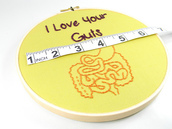 An estimated 25-45 million people in the United States suffer from Irritable Bowel Syndrome (IBS). It is much more common than many people realize. Symptoms can include
Herbal Therapies 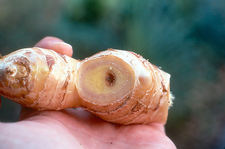 Traditional Chinese Medicine (TCM) uses herbal remedies to treat a number of ailments and diseases including IBS. Here are some of the simpler solutions that YOU can use at home:
AcupunctureAcupuncture is commonly used to treat chronic abdominal pain, bloating and other IBS symptoms. There has been at least one study done that specifically looked at acupuncture as a treatment for IBS. Acupuncture has been shown to relieve pain and stress, which are common triggers for IBS. This is done by regulating blood flow and Qi (pronounced “chee”) through acupuncture points. ProbioticsProbiotics are a healthy bacteria that normally live in your gut. It has been thought that those with IBS do not have enough probiotics in their intestinal tract. You can easily add probiotics to your diet by eating foods such as yogurt and sourdough bread. Kombucha and kefir are drinks that also include probiotics. Probiotic supplements can be found at your local health store. Meditation and Exercise
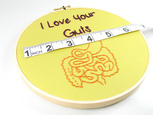 Food allergies and food sensitivities are a central focus of my practice and my life. As someone who is Gluten and Soy intolerant myself I know quite intimately how impactful food allergies can be. For me, I was in constant pain until I finally figured it out Gluten in particular was the main offender, and when I stopped eating gluten it was kind of miraculous. All the cramping, diarrhea, gas and bloating just went away. Not everyone who has food allergies or sensitivities has quite so dramatic an experience after testing themselves (I did a full Elimination Diet which you can read about HERE). Food allergies can cause a range of symptoms, from Irritable Bowel Syndrome (IBS) like I had or inflammatory bowel disease, to mild fatigue, headache, general malaise, even skin rashes and nasal congestion. So when you are trying to sort out a possible allergy or sensitivity, you have to pay attention to all of your symptoms, not just the digestive ones. Allergies, Sensitivities and Tolerance Levels Furthermore, its worthy to note that Allergies vs. Sensitivies are really a matter of degree. Whether you are allergic (meaning it will show up on a blood test) or sensitive (may or may not show up on a blood test) your experience of the symptoms can be just as dramatic and life altering. You also may have a tolerance level for certain allergens and when you tip the scales, you see a reaction but not otherwise. I always explain it like this: When you eat something you are allergic or sensitive to, your immune system responds but if it responds in kind, you experience little to no symptoms. This is your tolerance level. The reaction is happening and your body has it under control. When the body over reacts or under reacts you experience the difference between your allergy tolerance level and the hyper-immune response, or lacking response as the case may, be but usually the immune system is hyper-reactive and this causes your symptoms. 7 Tips for Managing Food Allergies Regardless of allergy vs. sensitivity or how far from tolerance your body and the allergens are taking you, there are many things you can do to manage food allergies. Here are my favorite 7 tips for how to manage food allergies today!
If you’re interested in knowing more about any of these suggestions or more about how Acupuncture and Chinese Medicine can provide long term relief, please do not hesitate to contact me or book a consult in anytime! Until next time, ~Rebecca
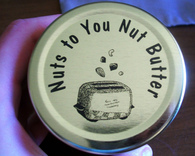 Since treatment for a digestive disorder was my introduction to the power of Acupuncture and Chinese Medicine, digestive disorders hold a very special place in my heart and in my practice. Assessing food allergies and sensitivities is always high on my list when people come into my office with digestive complaints and while it isn’t the source of everyone’s problems, it is becoming increasingly common and always bears review when determining course of treatment. The difference between a food sensitivity and a food allergy is something I get asked almost every day in my practice so you know, I thought it was probably time to write something about it! Food Allergy vs. Food Sensitivity - What Gives?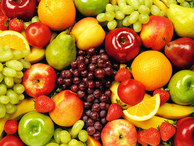 The difference between a food allergy and a food sensitivity is rather subtle and often confusing for most people. At the most basic level, a food allergy is something that is strong and will likely show up on a blood test. A food sensitivity is something more subtle - you may notice the signs and symptoms when you eat it, but it won’t necessarily create a strong enough reaction in the bloodstream to be measurable by western tests. This sounds rather straight forward, but most people find it confusing because the subjective experience of a sensitivity can be just as strong if not stronger than the subjective experience of an allergy. I’ll give you an example: Patient Joe is sensitive to gluten and allergic to eggs. His sensitivity to gluten causes irritable bowel syndrome symptoms - intestinal cramping and diarrhea - but a blood test does not show that he is actually allergic to the substance. His blood test identified allergy to eggs, however, causes some puffiness in the hands and feet and a feeling of lethargy. The experience of the intestinal cramping is painful, it feels more severe than the reaction to eggs, but technically it is a sensitivity because it doesn’t show up on a blood test. Both an allergy and a sensitivity cause antigen-antibody complexes to form in the bloodstream, cause inflammation and create a reaction. Only one (allergy) causes a large enough quantity of these complexes to be measurable in the bloodstream. As you can see, however, except for cases of anaphylactic shock, the difference between an allergy and a sensitivity is rather immaterial - they both cause a reaction that is harmful to the body and can negatively impact your quality of life. The key, therefore, is being able to identify them and make conscious choices about how we do (or do not) control our exposure to them so that WE get to be in charge of the reaction. Elimination Diets, Acupuncture and Chinese Herbs for |
| An Elimination Diet is a process whereby you eliminate allergenic and inflammatory foods for 2-4 weeks and then reintroduce the most common allergenic foods one by one to test your reaction to them. It isn’t fun, but it isn’t overly difficult or complicated, and it is a tried and true natural method for getting an answer to the question “what foods am I allergic to?” |
Completing an elimination diet and finding no food allergy triggers can seem anticlimactic, but is equally good information. If nothing shows up positive, you know that food is not the issue and you can cross that possibility off your list and move on to other interventions - herbs, supplements, acupuncture, pharmaceuticals - whatever is appropriate for your symptoms and your case.
In short, a healthy elimination diet is a powerful tool for understanding your symptoms. It can rule food allergies out as a problem, or it can give you control over your symptoms by understanding a food allergen and being able to make choices based on that knowledge. No medications, no supplements, no interventions - just choice. Powerful, simple, effective.
The symptoms of a food allergy can be quite broad. They can include a wild array of things including but not limited to:
|
|
How Does an Elimination Diet Work?
Second - you release endorphins and you can crave the allergen because your body is in pain. The constant battle between allergen offender and immune system defender is invasive. Your body releases endorphins to blunt the pain of the invasion, so you can actually crave the thing you are allergic to because of the mini high the battle produces.
An elimination diet stops the war by removing the offender so the defense can rest. The inflammatory response calms down, the endorphin release returns normal, and you find a new baseline. When you test the allergen, therefore, the defensive walls are down. When first contact hits, your body has to mount a larger response and you feel more of the symptoms related to that specific allergenic food (the troops are sleeping and have to wake up AND defend the walls of the castle, takes more energy).
Yes, this means your reaction seems more severe but actually it isn’t - you just feel more of it because you are starting from calmer baseline.
How Do I DO an Elimination Diet?
You can link to a PDF of my elimination diet instructions using the button below, as well as the Thorne Mediclear Patient Guide which outlines a broader elimination diet, as well as the use of detox supplements like Mediclear and Nutriclear which can help you cleanse the gut a little faster.
Questions? Contact Rebecca.
Until next time,
~Rebecca
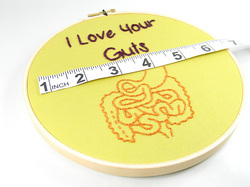
As someone who suffers from IBS I can tell you that it can be painful, debilitating, embarrassing and even exhausting at times. I can also tell you that there is hope, that while Western medicine does now have pharmaceutical tools to treat IBS, it doesn’t hold the only key or the only answers. Acupuncture is an incredibly powerful treatment for IBS, is completely natural, and is actually what inspired me to become an acupuncturist because of the difference it made in my life.
I suffered daily bouts of cramping, constipation and diarrhea for 7 years and then tried Acupuncture. In 3 months, my symptoms were completely gone and Chinese Medicine did not require me to continue regular treatment to maintain results. It was astonishing and life changing, and is absolutely the reason I am here writing this article today.
What Is IBS? What Causes IBS?
The medical criteria for diagnosing IBS (ROME 3 Criteria) is actually very simple:
Recurrent abdominal pain or discomfort** at least days/month in the last months associated with two or more of the following:* Criterion fulfilled for the last 3months with symptom onset at least 6months prior to diagnosis
- . Improvement with defecation
- . Onset associated with a change in frequency of stool
- . Onset associated with a change in form (appearance) of stool
** “Discomfort” means an uncomfortable sensation not described as pain.
- Bowel movements that occur more or less often than usual
- Stool that appears less solid and more watery, or harder and more lumpy, than usual
- Bowel movements that improve the discomfort
- Diarrhea—having loose, watery stools three or more times a day and feeling urgency to have a bowel movement.
- Constipation—having fewer than three bowel movements a week. During a bowel movement, stools can be hard, dry, and small, making them difficult to pass. Some people find it painful and often have to strain to have a bowel movement.
- Feeling that a bowel movement is incomplete.
- Passing mucus—a clear liquid made by the intestines that coats and protects tissues in the GI tract.
- Abdominal bloating.
- Brain-Gut Signal Problems - neurological miscommunication
- GI Motor Problems - spasm as mentioned above
- Hypersensitivity - a neurological hyper-awareness of bowel sensation
- Mental Health Problems - seratonin plays a role in gut motility so if your seratonin is irregular for any reason, your gut is readily affected. This means STRESS can cause IBS.
- Bacterial Gastroenteritis - gut infections can cause irritation and IBS
- Small Intestinal Bacterial Overgrowth - bacterial overgrowth can cause gas, diarrhea and weightloss due to malabsorption of nutrients.
- Body Chemicals - hormones can affect the gut and research shows that younger women are more likely to experience IBS during their menstrual cycle, and that post-menopausal women tend to suffer from less IBS.
- Genetics - GI problems often run in families, but whether this is due more to genetics or to shared lifestyle and eating habits is not completely clear as no specific gene for IBS has been identified.
- Food Sensitivity - sensitivities such as lactose intolerance, gluten intolerance and celiac (which is technically an autoimmune disorder) are known to cause IBS symptoms.
Acupuncture and IBS - IBS Treatment, IBS Management
Treatment is recommended weekly for 4-6 weeks as a starting course, though long time sufferers of IBS can require 3-6 months of regular acupuncture to create a lasting effect. When combined with herbs, diet and lifestyle changes if needed, Acupuncture can be completely transformative. A trial course of treatment along with assessment by a qualified practitioner determines how much intervention beyond acupuncture is necessary in any individual case.
Chinese Medicine defines IBS by several different energetic patterns. The possibilities for individual diagnosis are quite extensive since TCM treats every individual differently, but there are three diagnoses that are more common than the rest:
- Liver Overacting Spleen - this means that when you get stressed out your Liver Qi, which becomes stagnant and hot during stress, overacts and attacks the Spleen impairing the Spleen’s ability (energetically) to function and perform digestion.
- Spleen Qi Deficiency (Xu) - the Spleen is the primary organ of digestion in Chinese Medicine. If your Spleen Qi is weak or deficient due to lifestyle, prolonged stress, eating irregularly or improperly, it will not be able to perform regular digestive function and IBS can result.
- Damp Heat in the Large Intestine - this most directly correlates to bacterial overgrowth, though the presence of bacteria is not necessary to make this diagnosis from a TCM perspective. Anything causing a sensation of heat in the intestines combined with gas, bloating and diarrhea can be considered Damp Heat in the Large Intestine.
The differential diagnoses above, which can be combined in some cases, determines the specific acupuncture points and herbs selected in treatment.
Research shows that acupuncture and herbal treatment for IBS is quite effective - upwards of 80% of patients in some studies report improvement (Bensoussan et al. 1585-1589, 1998). Research also shows that acupuncture can virtually eliminate sympathetic nervous system response (fight or flight response) in some cases which lends credence to the validity of acupuncture to treat stress induced IBS in particular (Middlekauff et al. 399-406, 2002).
Rebecca's Story
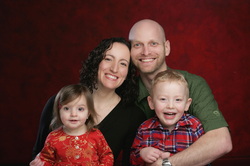
I went to see my western physician who told me I had IBS and recommended I try to eat healthy and hope it would resolve. She offered no specific dietary advice and, luckily for me frankly, there were no pharmaceutical interventions available at the time. I was actually getting ready to go to China for a year to study overseas and I was very frightened. If I couldn’t eat “regular” food in America that I was used to without having IBS, what was I going to do in China where the water isn’t clean and the foods are fairly different?
My mother had been seeing an acupuncturist since I was 9 years old, so she took me to see him during the summer before I left for China. He had a clear diagnosis for me - even though I didn’t understand what it was or what it meant - specific dietary recommendations and a clear treatment plan. He recommended weekly acupuncture and daily Chinese herbs for 3 months.
After two weeks my pain was 75% resolved and my bowel patterns were almost normal. By the 3 months mark all of my IBS symptoms were completely resolved. It felt like a miracle to go from 7 years of pain and discomfort to nothing, but there it was - Chinese medicine had a diagnosis, a treatment and ultimately for me, a cure.
Six years later, as I was coming to the end of grad school, my symptoms resurfaced due to stress and hormonal changes. I tried all the same things but it didn’t quite work - ultimately I learned that I had developed a Gluten intolerance (most likely due to epigenetic changes related to stress) and a soy sensitivity. Once I cut those things out of my diet, I had no further problems and I continue to enjoy regular comfortable digestion to this day.
I completely have Acupuncture and Chinese Medicine to thank for my healthy digestive function. The complete resolution of my symptoms at age 21 was phenomenal, and even my later gluten and soy sensitivity revelation was due to the guidance of another LAc. That experience put me on the path that led to me becoming an Acupuncturist, and helping people with digestive disorders is one of my true passions.
What do I do for IBS? Tips for Managing IBS.
- Get Acupuncture!
- Increase water intake - aim to drink ½ your body weight in ounces per day
- Increase fiber intake - research shows that good fiber intake can decrease IBS symptoms. It can be as simple as oatmeal for breakfast every day, or taking 2 Tbsp psyllium husk or ground flax seed 2x/day. If you increase your fiber intake you must increase your water intake as well, however.
- Drink Ginger Tea - fresh ginger tea is a natural anti-inflammatory and harmonizes digestion in Chinese Medicine. Boil 2-3 slices of ginger for 20 minutes, drink tea.
- Drink Peppermint and Orange Peel Tea - peppermint disperses Liver Qi in Chinese Medicine meaning it is good for reducing stress, and orange peel resolves gas and bloating. Combine the two into a powerful gut calming tea - simply boil a few slices of orange peel and steep a peppermint teabag in the water. You can combine this with fresh ginger as above as well
- Make Stress Reduction a priority
- Get Regular Exercise
Authors
Rebecca M H Kitzerow is a Licensed Acupuncturist practicing in La Center, Washington. With over a decade of experience she has won 10 Nattie consumer choice awards from Natural Awakenings Magazine since 2014.
Rebecca practices a variety of Acupuncture and Traditional Chinese Medicine techniques including Tan Acupuncture, Kiiko style Japanese Acupuncture, Traditional Chinese Herbal Remedies, Cosmetic Acupuncture, Foot Reflexology, Cupping and Gua Sha. Rebecca strives to help people Be Well and Stay Well in every way.
Archives
July 2024
June 2024
April 2024
February 2024
January 2024
November 2023
October 2023
September 2023
May 2023
April 2023
March 2023
January 2023
December 2022
November 2022
October 2022
September 2022
August 2022
July 2022
June 2022
May 2022
April 2022
March 2022
February 2022
January 2022
December 2021
November 2021
October 2021
September 2021
August 2021
July 2021
June 2021
May 2021
April 2021
March 2021
February 2021
January 2021
December 2020
November 2020
October 2020
September 2020
August 2020
July 2020
June 2020
May 2020
April 2020
March 2020
February 2020
January 2020
December 2019
November 2019
October 2019
September 2019
August 2019
July 2019
June 2019
May 2019
April 2019
March 2019
February 2019
January 2019
December 2018
November 2018
October 2018
September 2018
August 2018
July 2018
June 2018
May 2018
April 2018
March 2018
February 2018
January 2018
December 2017
November 2017
October 2017
September 2017
August 2017
July 2017
June 2017
May 2017
April 2017
March 2017
February 2017
January 2017
December 2016
November 2016
October 2016
September 2016
August 2016
July 2016
June 2016
May 2016
April 2016
March 2016
February 2016
January 2016
December 2015
November 2015
October 2015
September 2015
August 2015
July 2015
June 2015
May 2015
April 2015
March 2015
February 2015
January 2015
December 2014
November 2014
October 2014
September 2014
August 2014
July 2014
June 2014
May 2014
April 2014
March 2014
February 2014
January 2014
December 2013
November 2013
October 2013
September 2013
August 2013
July 2013
June 2013
Categories
All
Acupuncture
Affordable Care Act/Obamacare
All Ways Wellness
All-ways-wellness
All Ways Well News And Updates
Antiaging
Anti Aging
Archive
Arthritis
Car Accident
Chinese-herbs
Chinese-herbs
Diet And Nutrition
Diet-and-nutrition
Digestive
Electro Acupuncture
Facial-rejuvenation
Fertility
Find Your Well
Find-your-well
Foot-reflexology
Goodell Pt
Healthcare
Healthy Living
Healthy-living
Heart Health
Herbs
Infertility
Intermittent Fasting
Japanese-acupuncture
Menstrual Irregularity
Motor Vehicle Accident Treatment
Mthfr
Mva
Newsupdates06fb9f432f
Pain
Physical Therapy
Postpartum Recovery
Preventative Medicine
Preventative-medicine
Psoriasis
Psoriatic Arthritis
Seasonal
Stress
Wellness
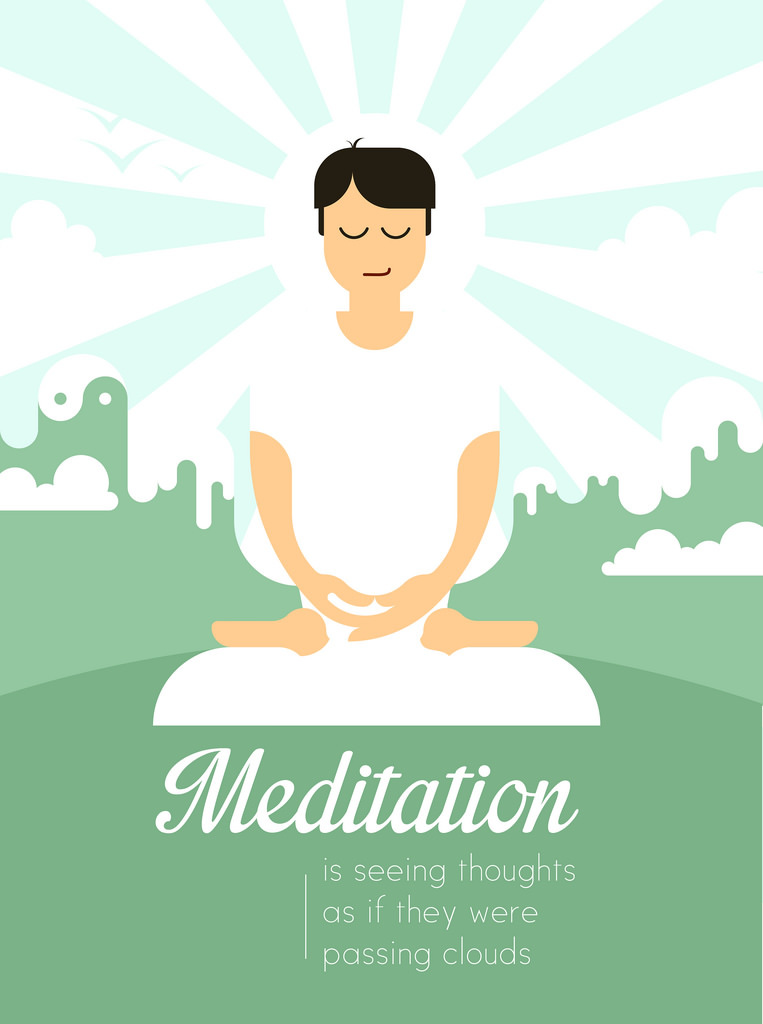
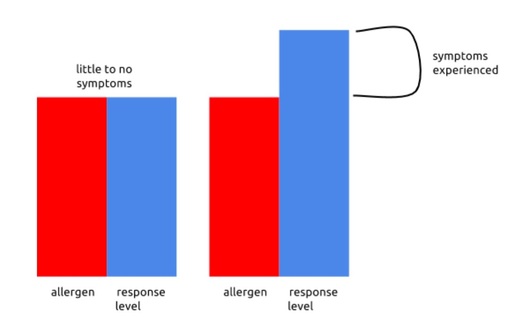
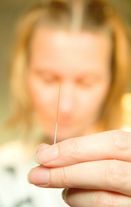
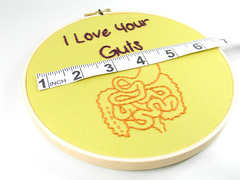
 RSS Feed
RSS Feed
